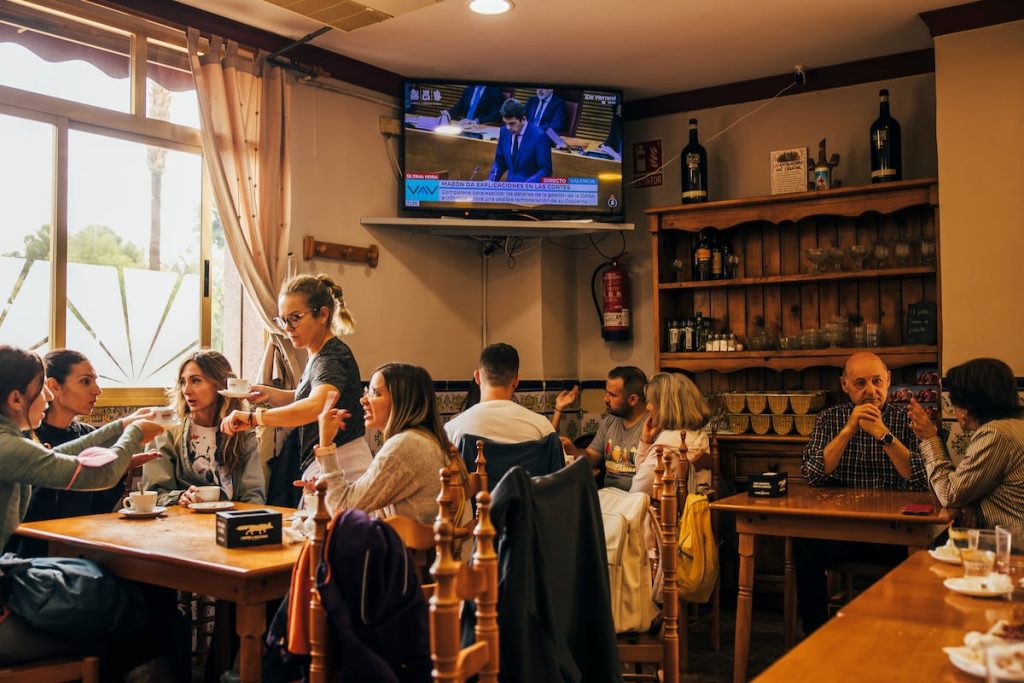In Sedaví, a small town located next to the new bed of the Turia River, there is a restaurant called El Pin that has served over 100 breakfasts this morning. As the President of the Generalitat, Carlos Mazón, was giving a speech in the Valencian Parliament, a different kind of crowd gathered at this corner of Doctor Fleming street. Volunteers, firefighters, teachers, military personnel, and handymen covered in mud were asking for hot sandwiches and dealing with more immediate problems like mud in garages, lack of gas, children without schools, and playing in the mud. While the president spoke, in a corner of the restaurant, a group of locals discussed the luxury of showering with hot water for the first time in days, regardless of the smell of gas in their homes. The community seemed to have moved past the need for apologies.
Amidst screens showing Mazón’s face throughout the restaurant, there was a sense of resilience and determination in facing the reality of the mud-covered and despair-ridden aftermath of the flood on October 29th. While the President acknowledged the lack of information and coordination in response to the disaster, locals like Ibo from Turkey, who had volunteered to help in various affected areas, shared stories of solidarity and assistance reminiscent of his homeland’s response to earthquakes. Despite the acknowledgment of faults and delayed response, the focus for many in Sedaví was on rebuilding and restoring normalcy with the help of volunteers and neighbors.
In other establishments like the bar Nova Casavella in Alfafar, the lack of interest in watching Mazón’s speech was prevalent. The only open TV in town played a sports channel, and the attitude towards the President’s statements was one of indifference. Similarly, a nearby mechanic’s shop in Benetússer displayed a sign questioning the local government’s inaction amidst the devastation. The disorganized car pile-up outside the shop was a stark reminder of the challenges faced by the community, resulting in apathy towards political discourse and official apologies.
The focus in the town had shifted towards cleanup efforts and restoration, with many residents preoccupied with the tasks at hand rather than engaging in political discussions. The reopening of terraces and cafes in Alfafar, Benetúser, Catarroja, and Sedaví marked a return to normalcy and the resumption of daily activities. Despite Mazón’s acknowledgment of systemic failures and shortcomings, many residents seemed disconnected from the political rhetoric surrounding the disaster. The challenges faced by the community in the aftermath of the flooding overshadowed political debates, as individuals worked together to rebuild and recover from the disaster.
As the community in Sedaví and surrounding towns continued their cleanup efforts and focused on rebuilding their lives, the atmosphere reflected a sense of unity and resilience in the face of adversity. The support from volunteers, neighbors, and strangers alike highlighted the strength and determination of the residents to overcome the challenges posed by the natural disaster. While political discussions and official apologies were acknowledged, the priority remained on restoring normalcy and moving forward together as a community. In the midst of devastation, stories of solidarity and mutual aid emerged, showcasing the unwavering spirit of the people in the wake of a catastrophe.


